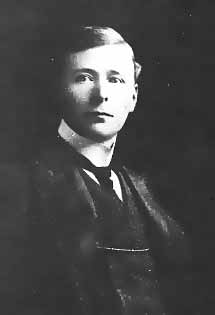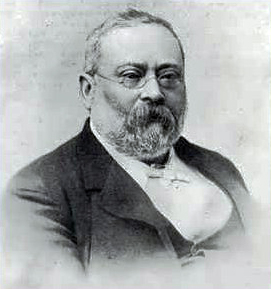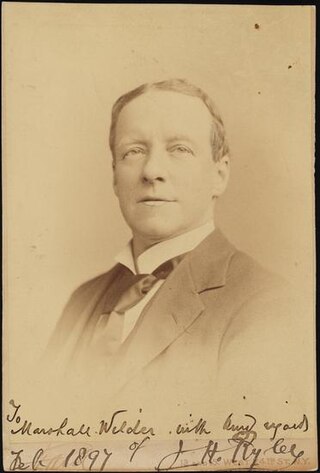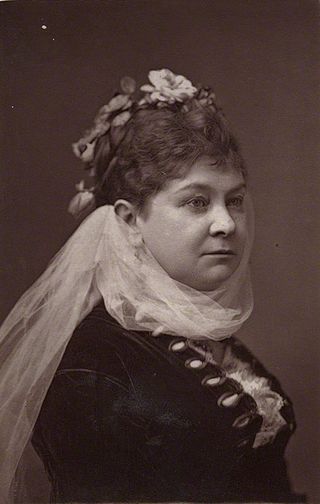
Leslie Stuart born Thomas Augustine Barrett was an English composer of Edwardian musical comedy, best known for the hit show Florodora (1899) and many popular songs.

Sir Charles Santley was an English opera and oratorio singer with a bravura technique who became the most eminent English baritone and male concert singer of the Victorian era. His has been called 'the longest, most distinguished and most versatile vocal career which history records.'

Walter Brandon Thomas was an English actor, playwright and songwriter, best known as the author of the farce Charley's Aunt.

Sir Julius Benedict was a German-born composer and conductor, resident in England for most of his career.

Albert Chevalier ;, was an English music hall comedian, singer and musical theatre actor. He specialised in cockney related humour based on life as a costermonger in London during the Victorian era. Owing to this and his ability to write songs, he became known to his audiences as the "costers' laureate".

Charles Penrose was an English music hall and theatre performer, and later radio comedian, who is best known for his unusual comic song "The Laughing Policeman". He was born in Biggleswade, Bedfordshire, the son of a master watchmaker and jeweller.

Kate Josephine Bateman Crowe was an American actress. She started out as a child actor with her sister Ellen Bateman, but it was Kate who later developed a career in romantic leading parts.
Harold Owen "Gary" Wilmot, MBE is a British actor who rose to fame as a contestant on New Faces.

Fred Terry was an English actor and theatrical manager. After establishing his reputation in London and in the provinces for a decade, he joined the company of Sir Herbert Beerbohm Tree where he remained for four years, meeting his future wife, Julia Neilson. With Neilson, he played in London and on tour for 27 further years, becoming famous in sword and cape roles, such as the title role in The Scarlet Pimpernel.

Alfred Glanville Vance, often known as The Great Vance, was an English music hall singer, regarded as "one of the most important of the early music-hall performers".

Wilhelm Meyer Lutz was a German-born British composer and conductor who is best known for light music, musical theatre and burlesques of well-known works.

John Handford Ryley was an English singer and actor, best known for his performances in the comic baritone roles of the Savoy Operas with the D'Oyly Carte Opera Company, particularly in America. His second wife was D'Oyly Carte performer, actress and playwright Madeleine Lucette Ryley.

John Orlando Parry was an English actor, pianist, artist, comedian, songwriter and singer.
Cowell is an English language surname.

Sydney Fairbrother was a British actress.
Mary Emma Ebsworth was an English dramatist.

Jane Elizabeth Vezin was a British actress.

Frederick Federici was an Italian-born British opera singer known for his work in the bass-baritone roles of the Savoy Operas written by Gilbert and Sullivan. He is also remembered as a reputed theatre ghost in Australia.

Joseph Leathley Cowell was an English actor, author, and painter.

Henry Phillips (1801–1876) was an English singer, who took on operatic roles in the 1820s and 1830s.

















